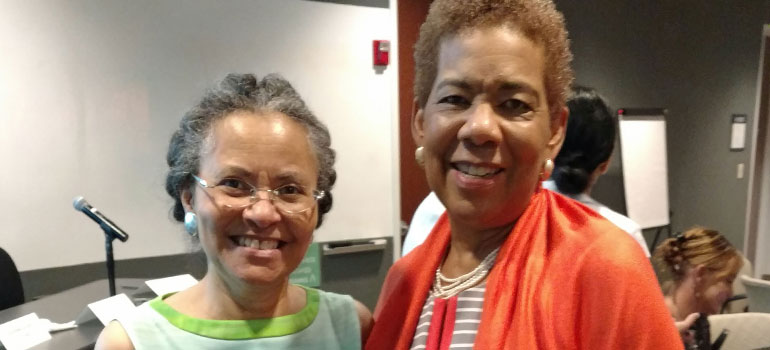PRESS RELEASE: HCAN projects help with housing crisis
FOR IMMEDIATE RELEASE
Health Care Access Now (HCAN) focuses on helping its clients overcome obstacles to good health outcomes. One serious barrier for low income or vulnerable community members is access to suitable housing. HCAN’s Community Health Workers (CHWs) have implemented new projects to alleviate the health problems that can arise from living in unsuitable environments.
- CHWs provide a series of Housing Educations to clients. These Educations focus on financial stability and eviction prevention. When clients complete the program, they receive a certificate.
- HCAN is partnering with All-In Cincinnati to place a CHW in a public housing complex. This is a more proactive approach; rather than waiting for clients to be referred to HCAN, the assigned CHW will work within a specific community to address social determinants of health, one of which is housing.
HCAN trains and coordinates CHWs, as well as acting as director of the regional Pathways Community HUB (HUB), providing an evidence-based system CHWs use to identify and break down typical barriers to good health outcomes.

Health Care Access Now (HCAN) recognizes the link between suitable housing and good health outcomes and has implemented two new programs to lessen the burden of unaffordable or unsuitable housing for the most vulnerable members of the Cincinnati community.
HCAN’s Community Health Workers (CHWs) have worked with the HCAN administrative team to develop a series of new Educations to share with clients on the importance of financial stability and eviction prevention. HCAN has also partnered with All-In Cincinnati, a racial equity coalition working to dismantle racial inequities in health, housing, education, economic mobility, and justice with the goal to uplift Black women in Hamilton County, to place a CHW in a specific public housing complex.
CHWs work directly with clients to identify and eliminate obstacles preventing good health outcomes. Not having access to suitable housing is an issue that is inextricably linked with people’s health—both physical and mental.
Giacoma Telich, HCAN CHW, says many factors contribute to whether housing is suitable, but the bare minimum is “housing that does not jeopardize [residents’] health, safety, or welfare.”
“If you’re right next door to a factory, the air quality is so hindered it can affect your health,” says Denise Harris, Director, Care Coordination Services at HCAN. “I’ve worked with clients and families who suffered from chronic asthmatic illnesses, all due to the location of their housing. Stress about financial issues related to housing can also increase anxiety and other mental health issues.”
CHWs help HCAN’s clients set goals for improved housing if they live in untenable situations, and they connect clients in crisis with the appropriate social services and agencies. To help prevent poor housing outcomes, such as eviction, CHWs provide information about how to avoid breaking the lease.
Once HCAN clients have gone through the full series of Housing Educations, they are awarded with a certificate that can be used to indicate to landlords that they have the tools to be good tenants.
Having a CHW on location at a public housing complex also aids in the pursuit of suitable housing for low-income Cincinnati residents; the CHW can make direct connections with residents and recognize first-hand the housing issues that could be causing health problems for people.
Because unsuitable housing has a direct connection with poor physical and mental health outcomes, HCAN has developed these new programs to give its clients a chance for healthier futures.




